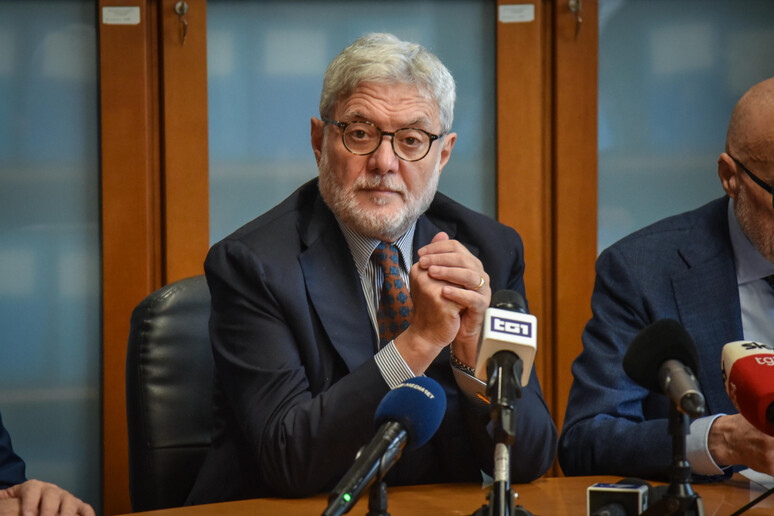National Anti-Mafia Prosecutor
Giovanni Melillo said on Tuesday that a probe in Palermo
allegedly revealing that jailed Cosa Nostra bosses were able to
coordinate criminal activities from prison has shown the extreme
weakness of the high-security penitentiary system which is
subjected to the control of criminal organizations.
"Alarming data emerged from this extraordinary investigations by
the State Attorney's Office in Palermo: the extreme weakness of
the high-security penitentiary circuit which should contain the
danger posed by Mafia members subjected to the 41 bis" system,
said Melillo.
The prison regime provides for near-total isolation reserved for
mafia bosses and other offenders deemed to be highly dangerous.
"The investigation in Palermo clearly shows, confirming what has
emerged from other investigative contexts, that the
high-security system is subjected to the dominance of crime",
Melillo told a press conference after 181 people were arrested
as part of the huge anti-Mafia operation in Palermo.
"It is a delicate theme that must open deep reflection", he
added.
Police in the Sicilian city on Tuesday arrested 181 suspected
Cosa Nostra members in relation to a probe by investigators in
Palermo into the Mafia syndicate's attempt to rebuild in the
area after a series of clampdowns over recent years landed
thousands of people in jail.
In particular, the probe revealed that jailed Mafia bosses have
been able to continue to manage their criminal activities,
including drug trafficking and meetings of mobsters, from prison
thanks to micro-SIM cards and encrypted mobile phones illegally
smuggled into their cells.
ALL RIGHTS RESERVED © Copyright ANSA











